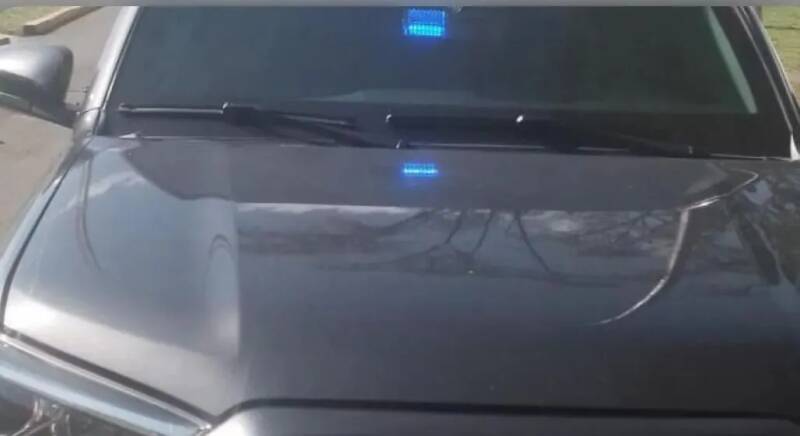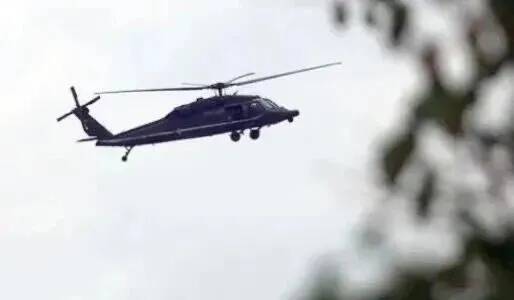Sudden! Colombia's Vice President shot in Cauca Province Future conflict affects coffee industry
On July 10th, the national security situation in Colombia deteriorated and the car commonly used by Vice President Francia M á rquez was shot in the Cauca region of southwestern Colombia, according to local media reports.

According to Colombian authorities, the incident took place near Cauca and was hit by bullets that may have come from a rifle. Fortunately, the vice president was attending activities elsewhere and was not in the car, and there were no casualties in the incident.
Although there were no casualties, the incident highlighted the long-standing violent conflict and complex security situation in the region. In addition, there are reports that a Colombian Army "Black Hawk" helicopter was hit in Cauca province against the rebels, the helicopter was seriously damaged, but no casualties were reported on board, but in the ground operation, two soldiers were injured.

There is no group responsible for the attack, but Colombian authorities blame the incident on an offshoot of the rebel Central staff (EMC) and believe that EMC has led to a surge in violence in Cauca and Cauca Valley provinces, making it a major area of the drug trade.
It is understood that Cauca province, located in southwestern Colombia, has long been the center of the activities of left-wing rebels, drug trafficking syndicates and right-wing paramilitary organizations. Because of the relatively complex terrain, the Colombian government has limited control over the area.
In recent years, the Colombian government has signed peace agreements with some rebel groups, but the violence in Cauca and Cauca Valley has not completely subsided, and there has even been a trend of intensification in some areas. Cauca Valley Province has been on the highest state of alert since early June because of frequent riots caused by armed forces.
The Cauca province and the Cauca Valley where the incident took place are also important coffee-producing areas in Colombia, which produce about 140000 tons of coffee a year. In addition, there are many well-known estates in these two coffee producing areas, such as Paraiso, Inmaculada and Cafe Grania de La Esperanza, thus attracting many coffee traders and bean hunters to the area.
Earlier, the Colombian National Federation of Coffee growers (FNC) reported that in the first half of this year, Colombian coffee production reached 5.82 million bags (60 kg / bag), an increase of 16% over the same period last year. In addition, coffee exports also increased by 15%, the best performance in recent years.
In this incident, the Colombian government may step up its military operations against the region, and in the event of a major armed conflict, it may deal a serious blow to the coffee industry in the region, resulting in a reduction in coffee production in the region. In addition, the port of Buenaventura, an important export port in Colombia, is located in the province of Cauca Valley, accounting for 32% of Colombia's national exports, while a lot of Colombian coffee is exported through the port. the outbreak of conflict may damage roads and other infrastructure in the region, and eventually affect exports.
Moreover, the attack on the vice president's motorcade has attracted much attention. The United Nations, the United States and the European Union have expressed their support for the Colombian government and believe that peace and stability such as Colombia are of vital importance to Latin America as a whole. support Colombia's efforts to combat violent crime. The permanent Representative of China to the United Nations said that China supports the Colombian government and relevant armed groups to resolve their differences through negotiations.
Important Notice :
前街咖啡 FrontStreet Coffee has moved to new addredd:
FrontStreet Coffee Address: 315,Donghua East Road,GuangZhou
Tel:020 38364473
- Prev

Less than half a year! The first store of the "6 million" coffee brand closes!
▲ Click to pay attention| Daily Boutique Coffee Culture Magazine Coffee Workshop Recently, many netizens revealed that the country's first store of "Kung Fu Coffee", Shenzhen Huangting Plaza Store, has closed for business on June 30. The Meituan App shows that Kung Fu Cafe is currently closed, and no relevant letter from the store can be found on the official Mini programs
- Next

What is the difference between black coffee and American coffee? Is hand-brewed coffee black coffee? What is the difference between a mocha pot and an espresso machine?
Recently, popular videos on the Internet often appear with the name "black coffee". It happens that the coffee held in the blogger's hand looks like an American style, so it is inevitable that some Xiao Bai friends who don't know much about it will ask below: Is black coffee American? What is the difference between black coffee and American coffee? So today, Qianjie will come and share it
Related
- What grade does Jamaica Blue Mountain No. 1 coffee belong to and how to drink it better? What is the highest grade of Blue Mountain coffee for coffee aristocrats?
- What are the flavor characteristics of the world-famous coffee Blue Mountain No. 1 Golden Mantelin? What are the characteristics of deep-roasted bitter coffee?
- Can I make coffee a second time in an Italian hand-brewed mocha pot? Why can't coffee be brewed several times like tea leaves?
- Hand-brewed coffee flows with a knife and a tornado. How to brew it? What is the proportion of grinding water and water temperature divided into?
- What is the difference between Indonesian Sumatra Mantinin coffee and gold Mantinin? How to distinguish between real and fake golden Mantelin coffee?
- What does bypass mean in coffee? Why can hand-brewed coffee and water make it better?
- Unexpected! Ruixing Telunsu lattes use a smoothie machine to foam milk?!
- % Arabia's first store in Henan opens into the village?! Netizen: Thought it was P's
- Does an authentic standard mocha coffee recipe use chocolate sauce or powder? Mocha Latte/Dirty Coffee/Salty Mocha Coffee Recipe Share!
- What is the difference between Vietnam egg coffee and Norway egg coffee? Hand-brewed single product coffee filter paper filter cloth filter flat solution!

